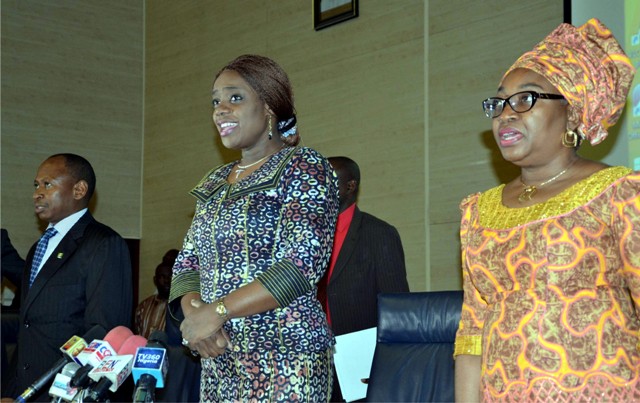Business
DISCO Urges NERC To Deregulate Meter Ownership

The management of Ibadan Electricity Distribution Company (IBEDC), has urged the Nigerian Electricity Regulatory Commission (NERC) to deregulate the ownership of electricity meters in the country.
Head, Corporate Communications Unit of the company, Ms Angela Olanrewaju, gave the advice in an interview with newsmen in Lagos, yesterday.
The Tide reports that IBEDC area of franchise covers Oyo, Ogun, Osun, Kwara State as well as parts of Ekiti, Niger and Kogi.
Olanrewaju said that part of the solution to address the metering gap in the country was for the company to deregulate meter ownership and financing.
She said that in a deregulated meter market, electricity customers or third parties should be able to finance and own electricity meters.
“Under existing regulations, Distribution Companies (DISCOs) have an obligation to provide meters to their customers and own electricity meters, regardless of who financed the meters.
“But in deregulated regime, home and business owners would then be able to move their meters when they move premises or relocate their businesses, the same way customers move with their DSTV decoders when relocating.
“Implementation would require regulations guiding the procurement and ownership of meters by third parties and customers.
“Deregulating meter ownership would free up the balance sheets of DISCOs to absorb more liabilities, reduce electricity tariffs as the Regulatory Asset Base of DISCOs become lower.’’
Olanrewaju said the development would also allow DISCOs utilise their allowable Capital Expenditure more efficiently, to finance critical network infrastructure.
She said the management of electricity meters involved the reading, inspection, routine parts replacement, testing and emergency repair of meters.
According to Olanrewaju, such action require ensuring the meter is functional at all times, and this is necessary for revenue assurance for DISCOs.
She said the company was faced with another challenge of huge rate of meter bypass in Nigeria.
According to her, recent statistics within the franchise area of IBEDC revealed that for every 10 meters installed, five to six meters are bypassed within 48 hours.
She said that the situation meant that the more customers were metered, the more revenue loss being incurred.
“This brings additional cost into the business, as not only do Discos have to finance metering, they also have to finance a system or task force that will ensure meters are not bypassed,” she said.
NAN reports that IBEDC on June 14 said it had metered all its Maximum Demand customers, as directed by the NERC. (NAN)
ROR/FLP/MZA
Business
Fidelity Bank To Empower Women With Sustainable Entrepreneurship Skills, HAP2.0
Business
President Tinubu Approves Extension Ban On Raw Shea Nut Export
Business
Crisis Response: EU-project Delivers New Vet. Clinic To Katsina Govt.
-

 News2 days ago
News2 days agoAmend Constitution To Accommodate State Police, Tinubu Tells Senators
-

 Politics2 days ago
Politics2 days agoSenate Urges Tinubu To Sack CAC Boss
-

 News2 days ago
News2 days agoDisu Takes Over As New IGP …Declares Total War On Corruption, Impunity
-
Business2 days ago
President Tinubu Extends Raw Shea Nuts Export Ban To 2027
-
Business2 days ago
Crisis Response: EU-project Delivers New Vet. Clinic To Katsina Govt.
-
Business2 days ago
President Tinubu Approves Extension Ban On Raw Shea Nut Export
-
Sports2 days ago
NDG: Rivers Coach Appeal To NDDC In Talent Discovery
-
Rivers2 days ago
Etche Clan Urges Govt On Chieftaincy Recognition

